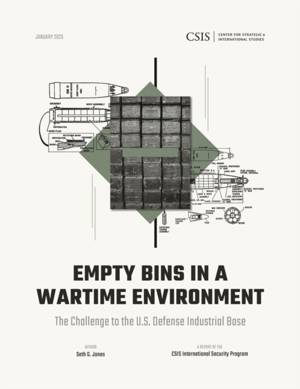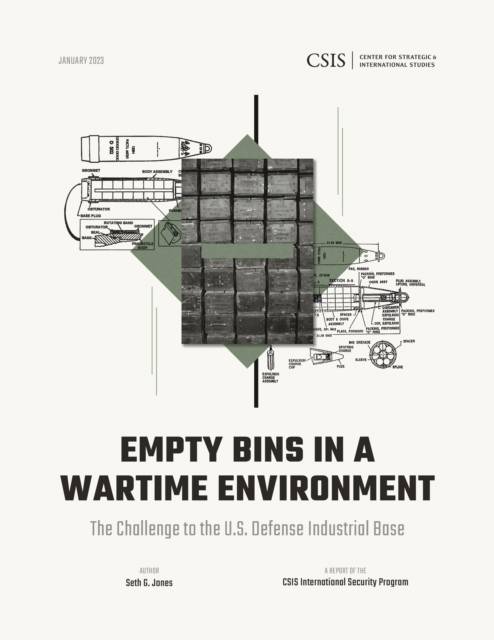
- Retrait gratuit dans votre magasin Club
- 7.000.000 titres dans notre catalogue
- Payer en toute sécurité
- Toujours un magasin près de chez vous
- Retrait gratuit dans votre magasin Club
- 7.000.0000 titres dans notre catalogue
- Payer en toute sécurité
- Toujours un magasin près de chez vous
Description
The U.S. defense industrial base is not adequately prepared for the international security environment that now exists. In a major regional conflict--such as a war with China in the Taiwan Strait--the U.S. use of munitions would likely exceed the current stockpiles of the U.S. Department of Defense. According to the results of a series of CSIS war games, the United States would likely run out of some munitions--such as long-range, precision-guided munitions--in less than one week in a Taiwan Strait conflict. The war in Ukraine has also exposed serious deficiencies in the U.S. defense industrial base and serves as a stark reminder that a protracted conflict is likely to be an industrial war that requires a defense industry able to manufacture enough munitions, weapons systems, and matériel to replace depleted stockpiles.
As timelines for a possible conflict in Asia shrink, the goal should be to support the production capacity required to enable the United States and its allies and partners to deter and, if deterrence fails, fight and win at least one major theater war--if not two. "Just in time" and lean manufacturing operations must be balanced with carrying added capacity. The U.S. Department of Defense, in coordination with Congress, should develop a plan now that involves taking steps to streamline and improve production, acquisitions, replenishment, Foreign Military Sales, ITAR, and other policies and procedures. A revitalization of the defense industrial base will not happen overnight for the United States or its allies and partners. It is time to prepare for the era of competition that now exists.
Spécifications
Parties prenantes
- Auteur(s) :
- Editeur:
Contenu
- Nombre de pages :
- 46
- Langue:
- Anglais
- Collection :
Caractéristiques
- EAN:
- 9781538170601
- Date de parution :
- 31-03-23
- Format:
- Livre broché
- Format numérique:
- Trade paperback (VS)
- Dimensions :
- 219 mm x 271 mm
- Poids :
- 158 g

Les avis
Nous publions uniquement les avis qui respectent les conditions requises. Consultez nos conditions pour les avis.






